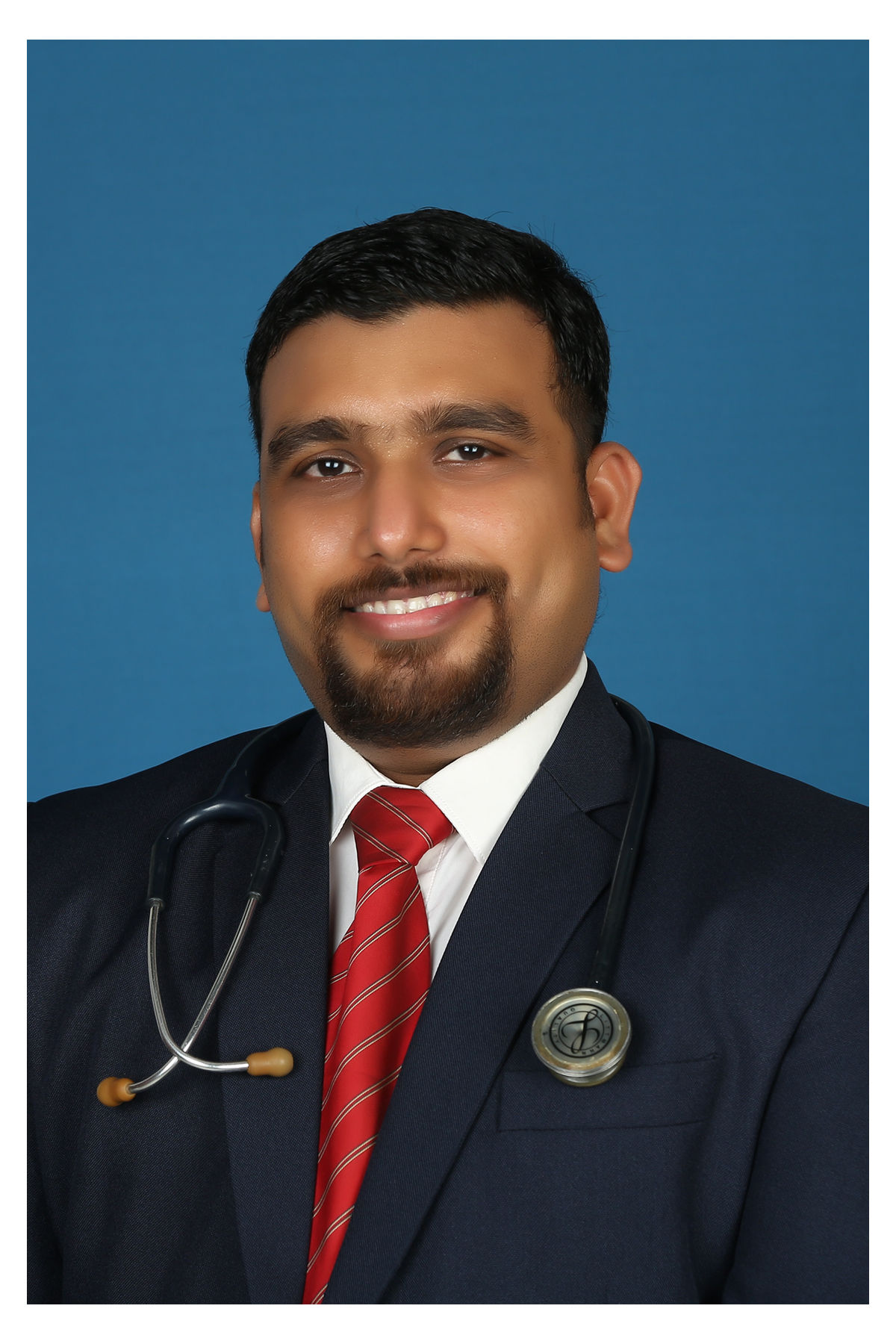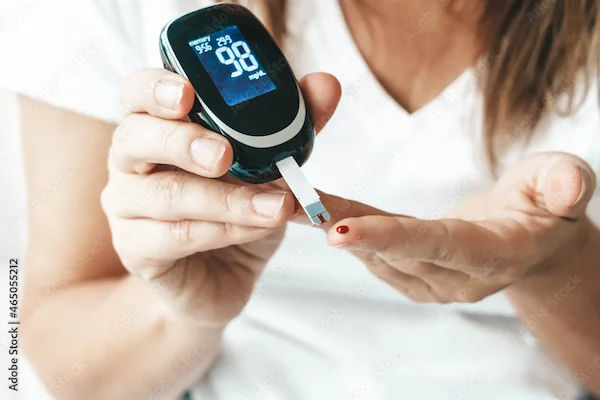Control Diabetes Effectively: A Comprehensive Guide to its Types & Treatments
Discover practical tips to control diabetes effectively and manage blood sugar levels. Learn about healthy lifestyle changes, diet tips, and medication management for better diabetes care.

Written by
Last updated on 3rd Jul, 2025
Diabetes is a chronic health disease that affects how the body processes blood sugar. It develops when the body either does not produce enough insulin or is unable to process it. Diabetes must be managed effectively to avoid long-term complications and improve overall health.
Regular blood sugar monitoring, a balanced diet, physical activity, proper medication and mental health support are all part of treatments and prevention methods. This article offers insight into how to control diabetes, its types, diet plan, medication, advanced treatments and prevention.
What are the Types of Diabetes?
There are 3 types of diabetes, which are as follows:
Type 1 Diabetes: It is a condition in which the body's immune system attacks insulin-producing cells in the pancreas. It usually develops in childhood or young adulthood.
Type 2 Diabetes: The most common form of diabetes is associated with lifestyle factors such as poor diet, lack of exercise, and obesity. It develops when the body becomes resistant to insulin, or the pancreas fails to produce enough insulin.
Gestational Diabetes: It is a temporary condition that develops during pregnancy. However, it often resolves after childbirth.
How to Use a Glucometer?
A glucometer is a small, portable device that allows a person to monitor their blood sugar level (glucose) at home or anywhere. This device, also known as a glucose meter, provides quick results and helps users manage their diabetes effectively.
Below are the steps to use a glucometer:
Step 1: Insert a test strip into the glucometer as instructed by the doctor.
Step 2: Use a lancing device to lightly puncture the finger and gently squeeze the finger to obtain a small drop of blood.
Step 3: Then, the glucometer automatically starts analysing the sample.
Step 4: The glucometer displays the blood sugar level within seconds on the device. It indicates if a person's blood sugar is too low, too high, or within the normal range.
Frequency of Monitoring in Diabetes
The frequency of monitoring blood sugar levels varies depending on the type of diabetes and the treatment plan.
People with type 1 diabetes may need to check their levels multiple times a day.
Those with type 2 diabetes may monitor less frequently.
It is essential to follow the doctor's recommendations to know the frequency.
Consult Top Doctors for Personalised Treatment
Dietary Changes for Diabetes Control
A diabetic diet is eating the healthiest foods in moderation and sticking to regular mealtimes. A nutritionist can help diabetic patients create a meal plan that matches their health goals, food preferences, and daily routine.
Here are some meal advice for people with diabetes:
Choose high-fibre, low-GI carbs like whole grains, beans, lentils, and non-starchy vegetables. Limit high-sugar fruits and processed carbs.
Eat more vegetables, nuts, and legumes to help regulate blood sugar. Opt for low-GI fruits like berries, apples, and pears in moderation.
Include fatty fish (salmon, tuna, sardines) for heart-protective omega-3s. Limit high-mercury fish like tuna.
Opt for healthy fats from avocados, nuts, olive oil, and peanut oil. Consume in moderation to maintain a healthy weight.
Limit saturated fats (butter, coconut oil) and avoid trans fats to protect heart health.
Foods to Avoid in Diabetes
Diabetes increases the risk of heart disease and stroke by enhancing the rate at which the arteries clog and stiffen. The foods to avoid in diabetes are as follows:
Saturated Fats: One must avoid high-fat dairy items and animal proteins, including butter, beef, hotdogs, sausage, and bacon.
Trans Fats: Individuals must avoid trans fats in processed food like baked goods and stick margarine.
Cholesterol: High-fat dairy products and animal proteins, as well as egg yolks and other organ meats, are all sources of cholesterol. So, one must aim not to take more than 200 mg of cholesterol each day.
Sodium: Individuals must try to limit their salt intake per day. If a person has high blood pressure, the doctor may advise them to limit their sodium intake.
Diabetes Medications and Insulin Methods
Diabetes management involves medications or insulin injections to regulate blood sugar levels. The treatment approach depends on the specific type of diabetes. Details on available options are provided below:
1. Medications for Type 1 Diabetes
For individuals with Type 1 diabetes, treatment involves replacing the insulin that the pancreas is unable to produce.
Insulin is the primary treatment for Type 1 diabetes, administered through injections or an insulin pump. The type of insulin prescribed depends on how the body responds to it and the severity of insulin deficiency.
Short-acting insulin: This type of insulin starts working within 30 minutes of injection, peaks in 2–3 hours, and lasts up to 3–6 hours.
Rapid Acting insulin: This type of insulin takes effect within 15 minutes, peaks in 1–2 hours, and lasts for 2–4 hours. It is suitable for managing blood sugar spikes after meals.
2. Medications for Type 2 Diabetes
People with type 2 diabetes produce insulin, but their bodies no longer use it effectively. The primary goal of type 2 diabetes treatment is to improve the body's ability to utilise insulin more efficiently or to remove excess glucose from the bloodstream.
Most medications prescribed for type 2 diabetes are oral drugs, although insulin or injectable medications may also be used when necessary.
Alpha-Glucosidase Inhibitors: These are drugs that help the body digest starchy meals and lower blood sugar levels. For best outcomes, one must take these inhibitors before meals to limit carbohydrate absorption and prevent spikes in blood sugar.
Biguanides: These medications lower the amount of glucose produced by the liver and reduce glucose absorption in the intestines. They also enhance glucose uptake by the muscles and increase the body's sensitivity to insulin.
Dipeptidyl peptidase-4 (DPP-4) inhibitors: DPP-4 inhibitors are drugs that help in reducing blood sugar levels. DPP-4 inhibitors help the pancreas generate more insulin, which results in improved blood sugar management in diabetics.
Techniques for Stress Management
Here are some techniques for managing stress with diabetes:
Exercise: Regular physical activity helps improve mood by releasing endorphins, which can reduce anxiety and depression.
Meditation and Mindfulness: Practicing meditation or mindfulness can help lower stress levels and contribute to better blood glucose management.
Talking to Others: Engaging in conversations with family, friends, or support groups provides emotional relief and helps individuals cope with stress.
Eating Well: Avoiding junk food and focusing on nutritious meals can help manage stress levels and improve overall well-being.
Benefits of Exercise in Diabetes
Regular exercise has many benefits for people with diabetes, including:
Blood sugar control
Reduced the risk of heart disease
Prompt weight loss
Reduced stress
Improved mental health
Innovative Treatments for Diabetes
There are several innovative therapies and technological support for diabetes, which are as follows:
Wearable Patches: A flexible patch can measure blood pressure and detect cardiovascular problems. The patch emits ultrasound waves to record the diameter of a blood vessel, and the software translates the measurements into information.
Blood Glucose Monitors: These devices use a drop of blood to check the blood glucose levels in the body.
Smart Insulin Pens: These pens can be used to take insulin.
Conclusion
Diabetes management is a lifelong commitment that involves balancing medication, diet, exercise, and mental health care. Understanding diabetes types, monitoring blood sugar, and making informed lifestyle choices can improve this condition. Regular check-ups and proactive care are essential to prevent complications and ensure long-term health.
Consult Top Diabetologists
Consult Top Diabetologists

Dr. Liritha C
General Physician/ Internal Medicine Specialist
5 Years • MBBS, MD (GENERAL MEDICINE)
Hyderabad
Apollo 24|7 Clinic, Hyderabad

Dr. Suraja Nutulapati
General Physician/ Internal Medicine Specialist
10 Years • MBBS, MD (Internal Medicine)
Hyderabad
Apollo 24|7 Clinic, Hyderabad
(850+ Patients)

Dr. Lakshmi Sanjitha Kakani
General Physician/ Internal Medicine Specialist
6 Years • MBBS, MD (General Medicine)
Visakhapatnam
Apollo 24|7 Clinic - Andhra Pradesh, Visakhapatnam

Dr. Usha Gaddam
General Physician/ Internal Medicine Specialist
9 Years • MBBS, DNB (Internal Medicine)
Hyderabad
DR. USHA GADDAMS CLINIC, Hyderabad

Dr. Raveendran Sr
Diabetologist
14 Years • MBBS,MD,D.DIAB,FSM
Chennai
S R Clinic, Chennai
Consult Top Doctors for Personalised Treatment

Dr. Liritha C
General Physician/ Internal Medicine Specialist
5 Years • MBBS, MD (GENERAL MEDICINE)
Hyderabad
Apollo 24|7 Clinic, Hyderabad

Dr. Suraja Nutulapati
General Physician/ Internal Medicine Specialist
10 Years • MBBS, MD (Internal Medicine)
Hyderabad
Apollo 24|7 Clinic, Hyderabad
(850+ Patients)

Dr. Lakshmi Sanjitha Kakani
General Physician/ Internal Medicine Specialist
6 Years • MBBS, MD (General Medicine)
Visakhapatnam
Apollo 24|7 Clinic - Andhra Pradesh, Visakhapatnam

Dr. Usha Gaddam
General Physician/ Internal Medicine Specialist
9 Years • MBBS, DNB (Internal Medicine)
Hyderabad
DR. USHA GADDAMS CLINIC, Hyderabad

Dr. Raveendran Sr
Diabetologist
14 Years • MBBS,MD,D.DIAB,FSM
Chennai
S R Clinic, Chennai

